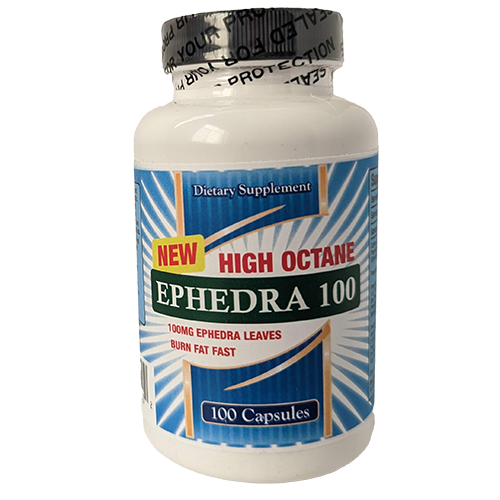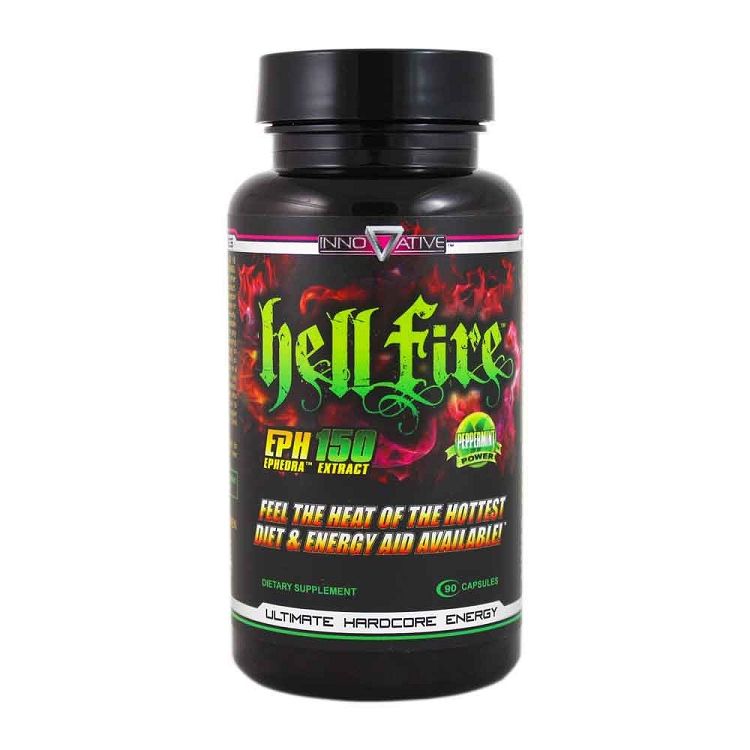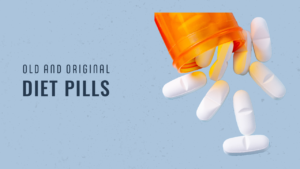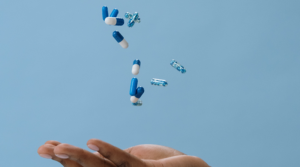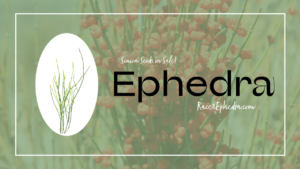Embarking on a journey towards physical excellence, many bodybuilders have sought the aid of various supplements to enhance their performance and sculpt an enviable physique. Ephedra, a potent herb known in Chinese medicine as ma huang, emerged as a powerful ally in this quest. With its rich history dating back to its traditional use for respiratory ailments, ephedra’s metamorphosis into a supportive agent for weight loss and athletic performance caught the attention of the bodybuilding community.
The allure of ephedra is primarily attributed to its active component, ephedrine, which since its synthesis in the late 19th century, has played a prominent role not just in medical treatments but also in the realm of sports and fitness. This guide aims to unveil the layers of ephedra’s potential within the bodybuilding world, examining its effects and the complex relationship it shares with weight management, enhanced focus, and prolonged stamina – elements crucial to any serious athlete.
However, with great potential comes significant scrutiny. In 2006, the FDA’s ban on ephedrine-containing dietary supplements came as a stark warning, bringing to light the serious safety concerns associated with ephedra consumption. Despite its prohibition in over-the-counter products, ephedra’s shadow still looms in the industry, available under strict regulations, and continues to be a topic of debate within bodybuilding and performance circles. As we further delve into ephedra’s story, remember that the balance between advantage and risk is a delicate one, with a legal and ethical tightrope to tread carefully upon in the pursuit of athletic excellence.

What is Ephedra?
Ephedra, commonly referred to as Chinese ephedra or ma huang, is recognized as a primitive evergreen shrub, flourishing in arid landscapes ranging from the South American wilds to the deserts of the southwestern United States and Mexico. Its history is steeped in medicinal practices originating in China and India, where it’s been employed for centuries to alleviate a variety of ailments, from the common cold to more severe conditions like fever and allergies. This plant’s enduring presence across these cultures signifies its potent pharmacological properties, most notably due to its active compound ephedrine, which is valued in modern medicine for its sympathomimetic actions – effectively mimicking the sympathetic nervous system’s fight or flight response – and its ability to clear congested respiratory pathways.
In a nod to its extensive cultural tapestry, ephedra was traditionally consumed as part of the Soma rituals in the Indo-Iranian religion, and by Native Americans as well as Mormon pioneers as a tea for its health-affirming attributes. This deep-rooted significance paints a picture of a botanical entity once revered and respected within ancient societies for its life-enhancing qualities. Despite its noble origins, the herb later found itself shrouded in controversy as dietary supplements containing ephedra alkaloids, infamous for being replete with side effects and causing a number of ephedra-related fatalities, were ultimately banned by the U.S. Food and Drug Administration (FDA) in 2004. Yet, ephedra extracts devoid of ephedrine remained untouched by this ruling and are still available for legal purchase today.

Featuring potent ephedra dosages from 10mg to 100mg, our range caters to all needs. Benefit from centuries-old Ma Huang herbal wisdom, now updated for modern effectiveness.
Stimulate Neurological Pathways
Ephedra’s chemical profile is a complex mosaic, featuring a variety of both alkaloid and non-alkaloid constituents. Ephedrine and pseudoephedrine emerge as its most recognized compounds, with effects that stimulate neurological pathways, spike metabolic rates, and influence cardiovascular functions. As such, ephedra’s allure as a performance-enhancing substance gained traction among athletes and fitness enthusiasts, albeit unsupported by evidence that conclusively attributes improved athletic performance to its usage. Additionally, ephedra has been implemented as a component in weight-loss strategies, often in conjunction with aspirin and caffeine, eliciting modest short-term success in fat reduction. However, this comes with a host of potential side reactions like irregular heart rhythms, severe dermatological responses, and neurological disturbances, underscoring the necessity for cautious and informed utilization.
Ephedra in Bodybuilding
Within the echelons of bodybuilding, ephedra has been sought after for its purported ability to assist in forging lean muscle mass while stripping away unwanted fat. Known for its robust stimulating, thermogenic, and lipolytic properties, bodybuilders have turned to this ancient herb as a potential aid in their rigorous training regimens. The premise of ephedra’s appeal lies in its primary alkaloid, ephedrine, which since its synthesis has found a place in the annals of Asian medicine for promoting weight loss through increased metabolic rate and fat burn.
A common routine among bodybuilders was the famed ECA stack, an acronym for Ephedra, Caffeine, and Aspirin, which combined, were believed to synergistically enhance weight loss while preserving muscle mass. Ephedrine, being the main actor, was observed to potentially increase the metabolic rate by nearly 5%, offering a crucial edge in the demanding pathway to a sculpted physique. In practice, bodybuilders reported that incorporating ephedrine could result in an additional 5 pounds of fat loss compared to placebo groups within a single month when adhering to a calorie-restricted diet. Additionally, ephedrine’s heightened stimulatory effects were not only purported to aid fat loss but also potentially to improve power output during intense exercise sessions.
Despite its once widespread popularity, the usage of ephedra in bodybuilding was not without significant controversy and concern. The ban on ephedra products in the United States in 2004 arose due to safety issues, including reports of adverse effects like rapid heartbeat and even rare but severe cases such as seizures and death. Still, some studies, including a recent peer-reviewed one, suggest that for healthy adults, long-term use of herbal ephedra in combination with caffeine may promote weight and body fat reduction while improving blood lipid profiles, without causing significant adverse events.
Ephedra Use by Bodybuilders
This powerful supplement, backed by rigorous surveys from a Long Island gym, reveals that 28% of dedicated bodybuilders incorporate Ephedra into their weekly regimen to maximize their muscle-building potential.
Ephedra is renowned for its potent properties that enhance energy levels, accelerate fat loss, and improve overall workout performance. This supplement stands out for its ability to provide a significant boost during intense training sessions, making it a popular choice among serious athletes and bodybuilders under 45 who are committed to achieving peak physical condition.
Key Features:
- Enhanced Energy Levels: Feel more energized and power through even the most challenging workouts.
- Accelerated Fat Loss: Support your cutting phase with an effective fat-burning supplement.
- Improved Performance: Elevate your training intensity and endurance for superior muscle gains.
The comprehensive survey highlights that bodybuilders prefer supplements like protein shakes, creatine, and ephedra to optimize their results. Unlike generic multivitamins or vitamin E taken for general health, ephedra is specifically chosen for its muscle-building benefits. It’s particularly favored by younger athletes looking to build muscle mass and improve workout efficiency.
Whether you’re aiming to sculpt a lean physique or push past your personal bests, ephedra is your secret weapon. Join the ranks of top-performing athletes who trust this powerful supplement to help them reach their fitness goals.
Ephedra or Ephedrine
For those considering ephedra or ephedrine use, recommended dosages typically start at 10 mg, split into three daily doses, potentially increasing to 20 mg after some days if well-tolerated. However, it’s crucial to note that the maximum advised intake should not exceed 50 mg thrice daily. The addition of caffeine may amplify the effectiveness, and augmenting with aspirin can further contribute to the fat-burning process while potentially mitigating certain side effects. Still, individuals with pre-existing health conditions like heart issues, sensitivity to stimulants, or those on specific medications like MAOIs, SSRIs, or NDRIs should refrain from taking ephedrine. Above all, it is imperative to be vigilant of ephedrine’s dosage since overdosing can result in severe health consequences.
Therefore, bodybuilders must heed warnings and take necessary precautions when considering the use of ephedra or ephedrine. Medical advice is paramount, especially if symptoms such as restlessness, tremors, insomnia, or nausea occur. Ensuring a responsible, well-researched approach to the use of such powerful stimulants can dictate the fine line between achieving enhanced physicality and risking health and well-being.
Scientific Evidence on Ephedra’s Effects
Ephedra’s influence on metabolism and energy expenditure has been the subject of numerous studies, with researchers examining its potential to catalyze weight loss and amplify exercise performance. Central to its efficacy are the ephedrine alkaloids which invigorate the central nervous system, effectuate an increase in heart rate and blood pressure, and possibly augment the body’s metabolic rate. In bodybuilding, these effects are particularly sought after, as a heightened metabolism can significantly assist in fat burning—a fundamental aspect of achieving a leaner, more defined musculature.
Investigations into ephedra’s impacts have yielded some supportive data for its metabolic enhancement capabilities. For example:
- Research demonstrates a correlation between ephedra supplementation and increased energy expenditure, which could potentially lead to more effective weight and fat loss endeavors. One controlled trial noted that subjects taking ephedra experienced a significant reduction in body fat compared to those who did not.
- Combining ephedrine with caffeine has been observed to amplify these fat-reducing effects. In a study featuring a long-term regimen of herbal ephedra paired with caffeine, participants showcased not only a decrease in both body weight and body fat but also improvements in blood lipid profiles—all achieved with no major adverse events reported. However, it’s important to discern that these outcomes can vary greatly from person to person.
Essential for Bodybuilding
- Despite these findings, caution cannot be overstated. Potential side effects associated with ephedra use are a pressing concern. Notable among them are increased heart rate and blood pressure, which pose risks for cardiovascular health. Anxiety and insomnia are also common and may disrupt the intricate balance of proper rest and recovery essential for bodybuilding. Furthermore, although less common, there have been reported cases of severe complications such as stroke or death arising from the use of products containing ephedra or ephedrine alkaloids, especially when used in excessively high doses or in individuals with underlying health issues.
- In light of these considerations, the FDA’s ban on ephedra-containing dietary supplements was a response to mitigate the risks associated with its usage. Still, as ephedra remains available in certain regions and online, the potential to encounter these risks persists, which underscores the importance of consulting healthcare professionals before incorporating any form of ephedra into one’s bodybuilding regime. The narrative of ephedra is a complex one, woven with threads of potential benefits and significant hazards, demanding a judicious assessment of its role in fitness and bodybuilding.
Combining Ephedra with Caffeine
Exploring the synergistic potential of combining ephedra with caffeine brings to light the intrinsic capabilities of both substances acting in concert, much like a synchronized dance where each participant enhances the other’s performance. Ephedra’s active compound, ephedrine, is a celebrated stimulant known for its capacity to liberate fat for fuel, while caffeine, a familiar stimulant lauded for its metabolic and cognitive arousal properties, further heightens the thermogenic process when used in tandem with ephedra. This compelling combination has caught the attention of bodybuilders and researchers alike, fostering investigations into its efficacy for weight loss and performance improvement.
Here’s a closer look at what the combination of ephedra and caffeine entails:
- Enhanced Weight Loss: The symbiosis of ephedra and caffeine initiates a pronounced increase in metabolic rate, with studies suggesting an enhancement in fat oxidation. For instance, ephedrine’s action of fueling fat availability pairs remarkably well with caffeine’s ability to stimulate metabolism and promote fat loss, potentially bestowing an increased metabolic rate by up to 5%.
- Improved Sports Performance: An intriguing finding from the scientific enclave is the revelation that this pairing notably augments athletic endurance. The combination of ephedrine and caffeine has been shown to significantly elongate the time to exhaustion in cyclists, substantiating the synergy that bolsters stamina, a prized advantage in strenuous bodybuilding workouts.
- Muscle Sparing Effects: One of the crucial considerations in bodybuilding is the preservation of hard-earned muscle. Ephedrine has been observed to enact a muscle-sparing effect by catalyzing thermogenesis directly within muscle cells and curbing urinary nitrogen excretion, indicative of lesser muscle breakdown.
Stimulants and Energy Expenditure
The merging of these two potent stimulants extends beyond just amplifying energy expenditure; it also touches upon a notable metabolic facet—the impact on the rate of gastric emptying. Ephedrine has been documented to slow the rate at which meals leave the stomach, potentially moderating the pace of nutrient absorption. This might be beneficial for appetite control, yet it exemplifies the layered complexity of the substances’ interactions with the body.
Despite the efficacy of ephedra and caffeine, the consumption of these stimulants commands respect and prudence. The FDA’s stringent stance against dietary supplements containing ephedra due to safety concerns remains a significant backdrop against which these substances are considered. Consultation with a healthcare provider, managed dosages, and awareness of the side effects such as hypertension, nervousness, and insomnia, are critical aspects of responsible usage. It bears repeating that while the potential for enhanced body composition is alluring, safety should never be compromised in the quest for performance and weight loss.
Side Effects and Safety Concerns
Navigating the waters of bodybuilding supplements requires a vigilant eye on both the horizon of benefits and the undercurrents of potential side effects. Ephedra, despite its beguiling promise of weight loss and enhanced focus, harbors a spectrum of safety concerns that the regulatory bans have sought to illuminate. It’s paramount for those considering ephedra’s role in their regimen to understand these health risks thoroughly:
Cardiovascular Risks: Ephedra’s stimulation of the central nervous system isn’t without its perils. The herb can precipitate a host of serious cardiovascular issues, such as:
- High blood pressure
- Irregular heartbeats or palpitations
- An increased risk of heart attacks and strokes
- Neurological Events and Systemic Effects: The ripple effects of ephedra can also extend to various bodily systems, leading to adverse events such as:
- Seizures, given the herb’s strong stimulatory actions on the nervous system
- Psychiatric symptoms including anxiety and mood changes, with the potential to exacerbate existing mental health conditions
- Kidney stones, narrow-angle glaucoma, and pheochromocytoma, due to ephedra’s systemic effects on organ function
Chemical Profile of Ephedra
Interactions with Medications: The chemical profile of ephedra is such that it may interact negatively with several classes of medications, causing harmful synergistic effects. The potential for liver harm is especially worrisome when taken with other liver-impacting drugs. These interactions can be catastrophic, and special heed should be paid to any concurrent use with medications for:
- Asthma and other respiratory conditions
- High blood pressure and heart diseases
- Overactive thyroid and other endocrine issues
Moreover, consideration must be given to the fact that while ephedra use might result in a modest increase in short-term weight loss, there is a conspicuous lack of evidence to champion its long-term efficacy and safety. In tandem with these health concerns, the legal ramifications provide a further layer of complexity. In the US, the FDA has barred ephedra-containing dietary supplements, though certain ephedrine medications remain available. Legislation may shift from state to state and country to country, so awareness of local laws is critical.
It’s for these myriad reasons that particular populations are cautioned against the use of ephedra. Pregnant and breastfeeding women, children, and individuals with pre-existing health conditions such as high blood pressure, psychiatric disorders, and seizure disorders should eschew ephedra to safeguard their health. The journey toward peak bodybuilding performance is ripe with decisions — some of which carry the weight of substantial risk. Recognizing and respecting ephedra’s potential dangers is essential as one charts a course through the dynamic landscapes of health, legality, and athletic excellence.
Legal Status of Ephedra
While ephedra’s potential in bodybuilding is well-discussed, its legal status casts a shadow of complexity over its use. In 2004, the U.S. Food and Drug Administration (FDA) implemented a ban on dietary supplements containing ephedra, commonly known as ma huang, due to severe health concerns. This decision emerged from a surge in adverse event reports including heart attacks, strokes, and even fatalities. Since then, the legal landscape has varied internationally—with some countries outright banning it, while others may allow its possession with a prescription or as an over-the-counter solution subject to specific regulations.
- In the United States, the sale of ephedra as a component in dietary supplements is illegal.
Violation of this ban could lead to substantial legal consequences. For example, in New York, selling or distributing ephedrine-containing supplements is generally prohibited, and violators could face a civil penalty of up to $500 per incident.
Ephedra-containing products, despite the ban, continue to surface on the market, often online, marketed as ‘legal’ alternatives. This points to a vigilant need for buyers to be aware of the constituents in supplements they purchase.
FDA Regulations Exceptions
However, despite the sweeping FDA ban, there are notable exceptions to the regulations surrounding ephedra:
- Over-the-counter drugs that have been approved or regulated by the FDA and contain ephedrine for legitimate medical purposes are still available. These uses include treating certain allergic conditions like bronchial asthma or preventing hypotension during anesthesia.
- Notably, in New York, specific practices are exempt from the ban; for instance, practitioners of oriental medicine or licensed physicians can dispense ma huang, provided it’s not for weight loss, bodybuilding, or as an ‘energy food’.
It’s worth mentioning that anyone affected by adverse effects from ephedra supplements may have legal recourse if the manufacturer did not provide adequate warnings. Given these nuances, both users and sellers must exercise due diligence and stay abreast of the evolving legislation. Engaging a knowledgeable healthcare provider can help navigate the legalities and potential health implications of ephedra use, ensuring that the pursuit of physical goals does not lead to legal entanglements or health risks.
Buy Strongest Prohormone

Boost your athletic performance and achieve your bodybuilding goals with Superdrol. This potent prohormone supplement helps reduce body fat while building lean muscle mass. Formulated with anabolic and androgenic agents.
Alternatives to Ephedra for Bodybuilders
As bodybuilders seek safe and effective alternatives to ephedra for enhancing workout outcomes and supporting weight management, several other supplements have stepped into the limelight, offering potential benefits with a different risk profile.
One such alternative is guarana, a powerful stimulant that contains two to three times more caffeine than coffee, making it a popular ingredient in energy drinks and supplements. Guarana is used for its ability to increase alertness and provide a sustained energy release, which can be particularly beneficial during intense training sessions. However, due to its high caffeine content, it is essential to monitor intake and be aware of possible side effects such as anxiety and increased heart rate, similar to those associated with caffeine consumption from other sources.
Green tea extract is prized not only for its lower caffeine content but also for its rich composition of antioxidant vitamins, which can contribute to overall health and aid in combating oxidative stress in the body. Unlike the more potent stimulants, green tea provides a more moderate increase in energy, balancing stimulation with the nutritional benefits of catechins and other phytochemicals.
The discussion wouldn’t be complete without a word on bitter orange, or citrus aurantium, which includes the stimulant synephrine, a compound comparable to ephedrine. While it has been linked to increased metabolic rate and energy expenditure, bitter orange also presents concerns regarding cardiovascular effects such as elevated blood pressure and constricted blood vessels. Moreover, the combination of bitter orange with caffeine might mirror the effects of ephedra-caffeine combinations, prompting caution and considerations of potential risks, especially in users with cardiovascular conditions or those taking certain medications.
Buy Epilean Shred for Cutting Phases

Get ready for your next cutting cycle with this powerful supplement. Packed with Epiandrosterone (3b-hydroxy-etioallocholan-17-one), it promotes hard, dry muscle gains without the side effects.
Adaptogenic Properties
Exploring ephedra alternatives extends beyond these botanical options. Traditional lifting weights, incorporating safe energy boosters, and focusing on a balanced diet that induces a caloric deficit of around 500 calories per day can all contribute to a steady and healthy weight loss of approximately one pound per week. Asian ginseng is another herbal consideration for bodybuilders, known for its adaptogenic properties that can support endurance and recovery.
While novel substances like oxilofrine, or methylsynephrine, have emerged in the market as ephedra substitutes, they are not approved for human consumption in the United States and have been subject to FDA warnings. It is imperative, therefore, for bodybuilders to consider these alternatives within the framework of legality, safety, and health, seeking medical advice, and remaining informed about the latest research and regulatory updates.
Conclusion
In our exploration of Ephedra’s role in bodybuilding, we have unearthed both its historical application for medicinal purposes and its modern-day attraction for fitness enthusiasts seeking to enhance performance and accelerate weight loss. The allure of Ephedra, grounded in its active component, ephedrine, comes with a mosaic of potentials and a plethora of risks, illuminated by serious safety concerns that led to the FDA’s ban on ephedrine-containing dietary supplements in 2004.
Throughout the article, we’ve delved into Ephedra’s intriguing capacity for increasing metabolic rate, its once popular embodiment in the ECA stack for heightened fat loss, and its ability to potentially spare muscle mass amidst caloric deficit training regimens. Coupled with caffeine, Ephedra’s effects appeared magnified, suggesting a synergistic boon for those striving towards a chiseled physique.
Nevertheless, the potential benefits of Ephedra cannot overshadow the gravity of its associated health risks and the spectrum of side effects ranging from cardiovascular problems to neurological disturbances. It is these concerns that underscore the importance of prudence and medical advice when considering the incorporation of Ephedra, or any of its alternatives, into a bodybuilding routine.
Legal and Ethical
The implications of our findings steer towards a larger narrative that encapsulates the broader legal and ethical aspects of supplement use in sports. On the one side, there is the undying quest for peak physical performance; on the other, a need for stringent regulations to protect public health and ensure fair competition. The legal status of Ephedra remains a dynamic subject across different jurisdictions, demanding due diligence from both users and distributors.
In conclusion, while Ephedra and its derivatives have etched a place in the annals of bodybuilding for their performance and weight management potential, one must tread this path with caution and awareness. We leave our readers with a call to prioritize health over fleeting gains and to support further research into safe and effective nutritional strategies. As the scope of fitness and regulatory perspectives evolve, so must our pursuit of knowledge and respect for the well-honed balance between advantage and risk.
FAQs
As bodybuilders and fitness enthusiasts have increasingly inquired about ephedra and its impacts, we’ve compiled some of the most frequently asked questions to clarify misconceptions and provide evidence-based information:
- Weight Loss and Ephedra: While ephedra and ephedrine alkaloids have been linked to weight loss over short-term use (less than or equal to 6 months), there are no conclusive studies on their long-term effects on weight management. It’s emphasized that further research is needed to understand the efficacy and safety of ephedra-containing products beyond this period.
- Ephedra’s Impact on Athletic Performance: Despite ephedra’s popularity among athletes, no substantial evidence is available to suggest that dietary supplements containing ephedra or botanicals enhance athletic performance. However, a modest effect of ephedrine plus caffeine on athletic performance has been observed very shortly after intake (1-2 hours after a single dose) within a highly fit population.
- Risk Profile of Ephedra and Ephedrine: Controlled trials have reported that the use of synthetic ephedrine, or ephedra plus caffeine, can lead to a 2-3 fold increase in the risk of adverse effects such as nausea, vomiting, psychiatric changes like anxiety or mood fluctuations, autonomic hyperactivity, and palpitations when compared to a placebo. These concerns are substantial and highlight the importance of wielding these substances with caution.
Use of Ephedrine
Here are some additional data points surrounding the use of ephedrine in the context of bodybuilding:
- Dosage for an ECA Stack: In an ECA stack, where ephedrine is combined with caffeine (and sometimes aspirin), the typical dosing is 20-24mg of ephedrine for three doses throughout the day.
- Isolated Ephedrine for Fat Metabolism: Studies show that taking 20-50mg of ephedrine alone, thrice a day, can promote fat metabolism. However, it is commonly consumed alongside caffeine and other xanthine compounds to potentially boost this effect.
- Ephedrine as a Stimulant: Ephedrine activates the sympathetic nervous system, supporting muscle gain and fat loss by increasing energy expenditure and promoting the breakdown of fat for fuel.
- Metabolic Rate Increase: Usage of ephedrine has been associated with up to a 5% increase in metabolic rate in humans, which can contribute to weight loss efforts.
- Risks and Side Effects: It’s imperative to remember that, despite the benefits, ephedrine can cause serious side effects, and legality varies by region. Always consult with a health professional before starting any new supplement regimen.
In sum, while certain short-term benefits of ephedra in weight loss and possibly athletic performance have been recorded, the overall recommendation is to proceed with extreme caution. Health, above all, should not be compromised.
References
Shekelle, Paul G., Sally C. Morton, Mary L. Hardy, Margaret A. Maglione, Marika Booth, Elizabeth Roth, Lara Hilton, Walter Mojica, James Gagne, Shannon Rhodes, Eileen M. McKinnon, and Sydne J. Newberry, Ephedra: Is It Worth the Risk? Santa Monica, CA: RAND Corporation, 2003. https://www.rand.org/pubs/research_briefs/RB4556.html.
Thomas J. Ebert, 14 – Autonomic Nervous System Pharmacology, Editor(s): Hugh C. Hemmings, Talmage D. Egan, Pharmacology and Physiology for Anesthesia (Second Edition), Elsevier, 2019, Pages 282-299, ISBN 9780323481106,
https://doi.org/10.1016/B978-0-323-48110-6.00014-4
Ephedrine is a natural product of the ephedra plant (Ephedra sinica), and is a mixed-acting, noncatecholamine sympathomimetic with both direct and indirect stimulating effects on α- and β-adrenergic receptors. https://www.sciencedirect.com/topics/neuroscience/ephedrine
Shekelle PG, Hardy ML, Morton SC, et al. Efficacy and Safety of Ephedra and Ephedrine for Weight Loss and Athletic Performance: A Meta-analysis. JAMA. 2003;289(12):1537–1545. doi:10.1001/jama.289.12.1537
Caveney S, Charlet DA, Freitag H, Maier-Stolte M, Starratt AN. New observations on the secondary chemistry of world Ephedra (Ephedraceae). Am J Bot. 2001 Jul;88(7):1199-208. PMID: 11454619.
Morrison, L. J., Gizis, F., & Shorter, B. (2004). Prevalent Use of Dietary Supplements among People Who Exercise at a Commercial Gym. International Journal of Sport Nutrition and Exercise Metabolism, 14(4), 481-492. Retrieved Jul 8, 2024, from https://doi.org/10.1123/ijsnem.14.4.481
